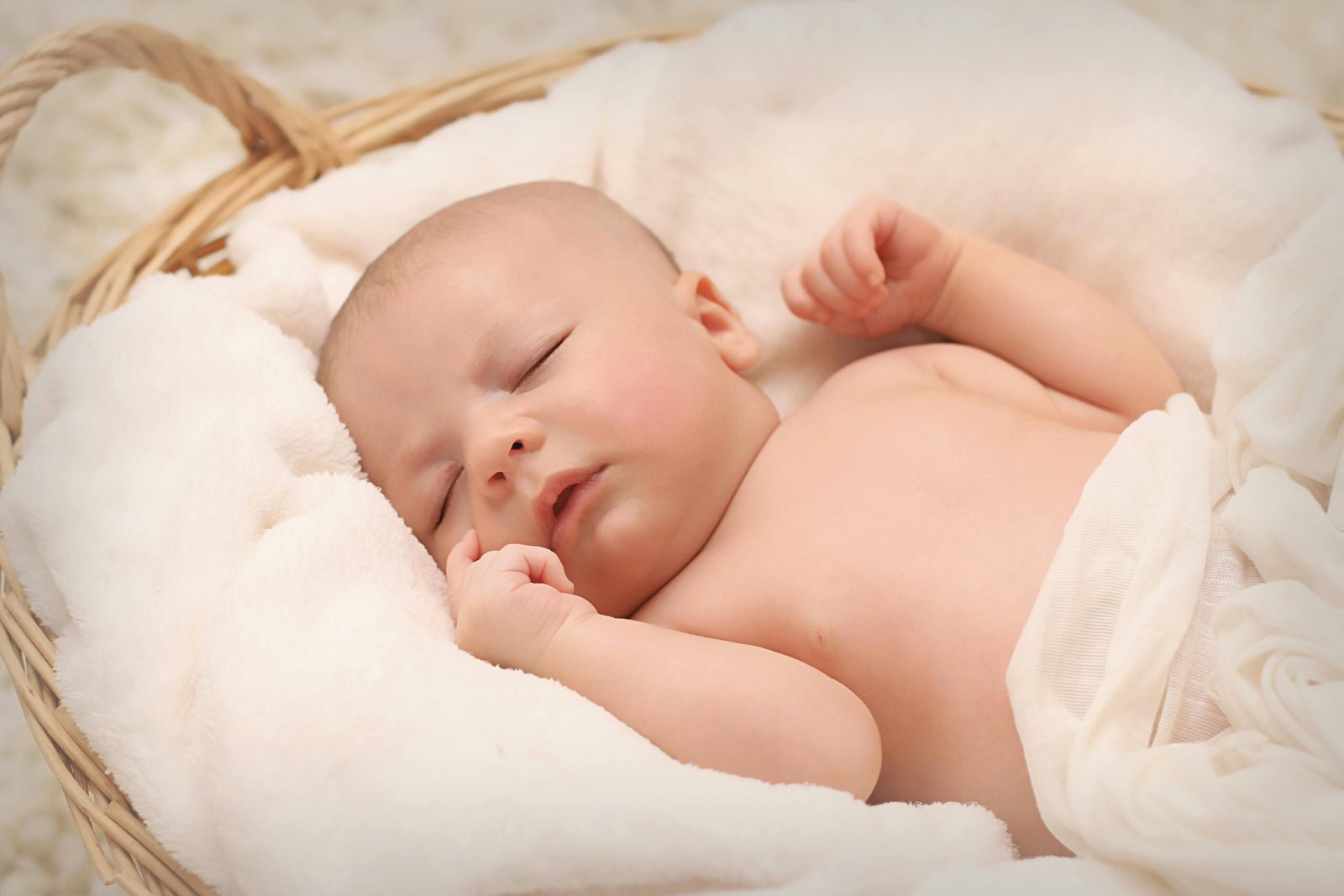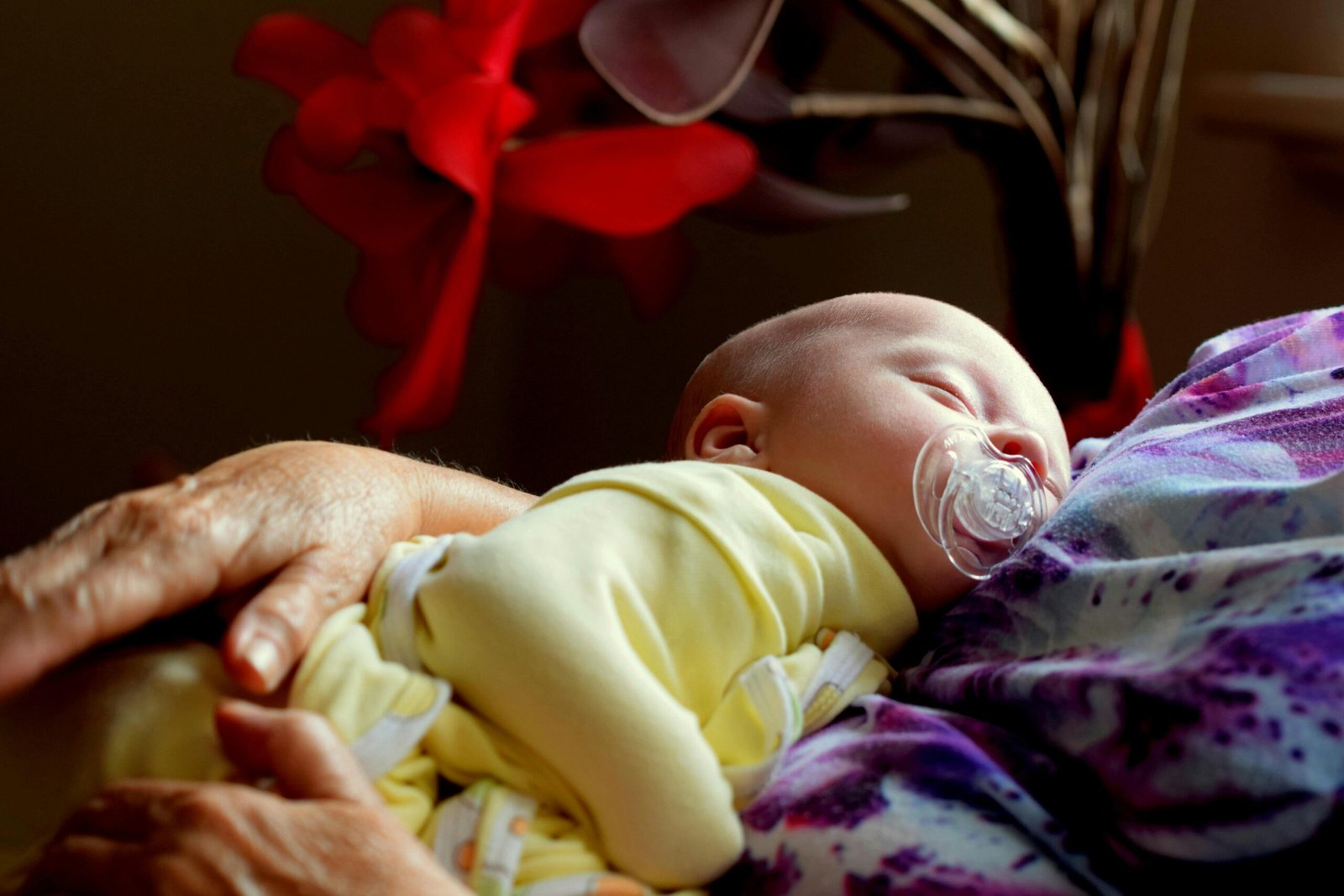Babies spend a lot of time sleeping, but have you ever wondered, “When do babies start dreaming?” As they snooze away in their tiny cribs, their little bodies grow, their brains develop, and their minds explore a mysterious world of sleep. But do babies actually dream? And if so, what could they possibly be dreaming about? Let’s take a closer look at the fascinating world of infant sleep and find out when babies start dreaming.
Understanding Baby Sleep Cycles

Before diving into the question of when do babies start dreaming, it’s important to understand how their sleep works. Unlike adults, babies don’t follow the same structured sleep patterns. Their sleep is divided into two primary stages: active sleep (which is similar to REM sleep in adults) and quiet sleep (similar to deep sleep). During active sleep, their little eyes move rapidly under their eyelids, their breathing may become irregular, and they might even twitch or smile.
Since dreaming in adults is most commonly associated with REM sleep, it’s natural to assume that when babies start dreaming, it would likely happen during their active sleep stage. But is that really the case? Scientists and sleep experts have debated this for years, and while there’s still much to learn, some fascinating insights have emerged.
When Do Babies Start Dreaming in the Womb?
Did you know that babies experience REM sleep even before they are born? Around the seventh month of pregnancy, fetuses begin to have REM sleep cycles. This means that, technically, the foundation for dreaming exists even before a baby enters the world. However, whether or not unborn babies actually dream is still a mystery. Some researchers believe that while they might not have traditional dreams like adults, their brains could be processing sensory experiences from inside the womb, such as the sound of their mother’s voice or the rhythmic motion of her movements.
When Do Babies Start Dreaming After Birth?
Once babies are born, their sleep is dominated by active sleep. In fact, newborns spend about 50% of their total sleep time in this phase. But does this mean they are dreaming? Many experts think that while newborns experience REM sleep, their brains might not yet be capable of creating the kinds of complex dreams that older children and adults have.
Some researchers suggest that newborns’ REM sleep plays a different role—one that focuses on brain development rather than dreaming. Since babies are constantly absorbing new information and forming neural connections, their active sleep might be more about processing these new experiences rather than creating dreamlike narratives.
When Do Babies Start Dreaming Vividly?
If newborns don’t dream the way adults do, then when do babies start dreaming in a more vivid, story-like way? Experts believe that true, narrative-based dreaming likely begins when a child’s brain has developed enough to form memories and imagination, which typically happens between the ages of two and three.
Around this age, toddlers begin to express more creativity, tell stories, and show signs of having an active imagination. It’s also when children start to experience nightmares and night terrors. These experiences suggest that their brains are now capable of forming dreams with recognizable images, events, and even emotions.
What Do Babies Dream About?

Even if babies do dream, what could they possibly be dreaming about? Since they haven’t had many experiences yet, their dreams likely differ from the complex storylines adults have. If newborns and young infants do dream, their dreams might be simple flashes of light, familiar sounds, or even feelings of warmth and security.
As babies grow and interact more with their environment, their dreams may start to include familiar faces, voices, and everyday activities. By the time they reach toddlerhood, their dreams might resemble playful scenarios featuring their parents, toys, and even their favorite stuffed animals.
How Can You Tell If a Baby Is Dreaming?
Since babies can’t tell us about their dreams, how can we know if they’re dreaming? While there’s no surefire way to know exactly what’s happening in a baby’s mind, there are a few clues that might suggest they are dreaming.
During active sleep, babies often show signs like twitching, smiling, or even making small noises. These movements might indicate that their brains are processing information, but whether it means they are actually dreaming is still up for debate. Some parents like to think that when their baby smiles in their sleep, they must be having a happy dream—but the truth is, we just don’t know for sure.
Do Nightmares Affect Babies?
If dreams are a normal part of sleep, do babies also have nightmares? Nightmares are usually linked to fears and anxieties, and since newborns and young infants haven’t yet developed a sense of fear, it’s unlikely that they experience nightmares the same way older children do.
However, as babies grow into toddlers and start to understand the world around them, they may begin to have nightmares. This often happens around the age of two or three, when children start experiencing more complex emotions and worries. Parents might notice their toddlers waking up upset or frightened, which could be a sign of a nightmare.
Helping Your Baby Sleep Peacefully
Whether or not babies are dreaming, ensuring they get quality sleep is crucial for their growth and development. Here are some tips to help your baby sleep more soundly:
- Create a calming bedtime routine with gentle rocking, lullabies, or a warm bath.
- Keep the sleeping environment quiet, dark, and comfortable.
- Follow a consistent sleep schedule to help your baby develop good sleep habits.
- Offer comfort if your baby wakes up crying, but try not to overstimulate them.
By providing a peaceful sleep environment, you can help your baby rest well—whether they’re dreaming or simply growing!
The Mystery of Baby Dreams
So, when do babies start dreaming? While we may never know exactly what goes on in their tiny minds during sleep, research suggests that true dreaming, with images and stories, likely begins around toddlerhood. Until then, babies’ REM sleep plays a vital role in brain development and learning.
One thing is for sure—watching a baby sleep is one of the sweetest, most peaceful sights in the world. Whether they’re dreaming of their parents’ loving faces or simply resting for another day of discovery, their little minds are hard at work. Sweet dreams, little ones!
Frequently Asked Questions: When do Babies Start Dreaming
1. Do babies even dream?
It’s a fun thing to think about, isn’t it? A tiny newborn, snoozing away, dreaming of… what exactly? While we can’t ask them, scientists believe babies do dream, at least in some way. Newborns spend about half their sleep time in REM (rapid eye movement) sleep, which in adults is the stage where most dreaming happens. That said, their dreams probably aren’t full-fledged stories like ours. Since their brains are still developing and their experiences are limited, their dreams are likely more like flashes of colors, shapes, and sensations—maybe the warmth of being held, a familiar voice, or even the gentle rocking they felt in the womb.
2. When do babies start dreaming in a way we’d recognize?
If you’re picturing a baby dreaming about flying puppies or a magical land of milk bottles, that kind of imaginative dreaming probably doesn’t kick in until later. Since dreams are closely linked to memory and storytelling abilities, experts think babies don’t have structured, narrative dreams until they develop language and a sense of self—around two to three years old. Before that, their “dreams” might just be little bursts of sensory experiences, more like a baby’s version of a screensaver than a full-length movie.
3. Can babies have nightmares?
This is a tricky one. While toddlers and older kids definitely experience nightmares, it’s hard to say if newborns or very young babies do. Since nightmares often stem from fears or anxieties, and tiny babies don’t have the ability to imagine scary things yet, it’s unlikely they have full-blown bad dreams. However, they do sometimes twitch, whimper, or seem unsettled in their sleep, which might just be their developing nervous system at work rather than a scary dream. If your little one wakes up crying, it’s more likely due to hunger, discomfort, or needing some cuddles rather than a monster in their dreams.
4. What do babies’ dreams look like?
If only we could peek inside! While there’s no way to know for sure, baby dreams are probably much simpler than ours. Since they don’t have the ability to imagine complex scenarios yet, their dreams might just be little snippets of the things they experience daily—like the sound of a lullaby, the feel of a soft blanket, or the comforting rhythm of a heartbeat. Instead of detailed dream sequences, they might experience dreamy sensations rather than full-blown adventures.
5. Do babies dream before they’re born?
Amazingly, they might! By the third trimester, babies already spend a good chunk of time in REM sleep, which suggests they could be having dream-like experiences even before birth. Of course, since they haven’t seen the outside world yet, their dreams (if they have them) would be made up of what they know—warmth, muffled sounds, gentle swaying. It’s possible that even before they take their first breath, they “dream” of their mother’s voice or the rhythmic thump of her heartbeat.
6. Why do babies twitch or smile in their sleep?
Ever noticed how newborns sometimes smile, twitch, or even make little sucking motions while they sleep? These movements are part of a normal developmental process called sleep myoclonus, and they don’t necessarily mean they’re dreaming of something specific. However, some scientists believe these twitches help babies’ brains wire up their developing motor skills. As for smiling? That could just be a reflex, but hey, maybe they are dreaming of something wonderful—like that delicious milk they just had.
7. Will my baby’s dreams change as they grow?
Absolutely! As babies get older and their brains develop, their dreams likely become more complex. Once they start forming clear memories and understanding the world, their dreams might begin to reflect their daily lives—things like playing with a favorite toy, seeing a pet, or even just crawling across the floor. By the time they’re toddlers, their dreams could start to include little storylines, emotions, and even make-believe elements. That means one day, they might just wake up and tell you all about their wild dream where their teddy bear talked to them or they flew to the moon on a banana. Sounds fun, right?
